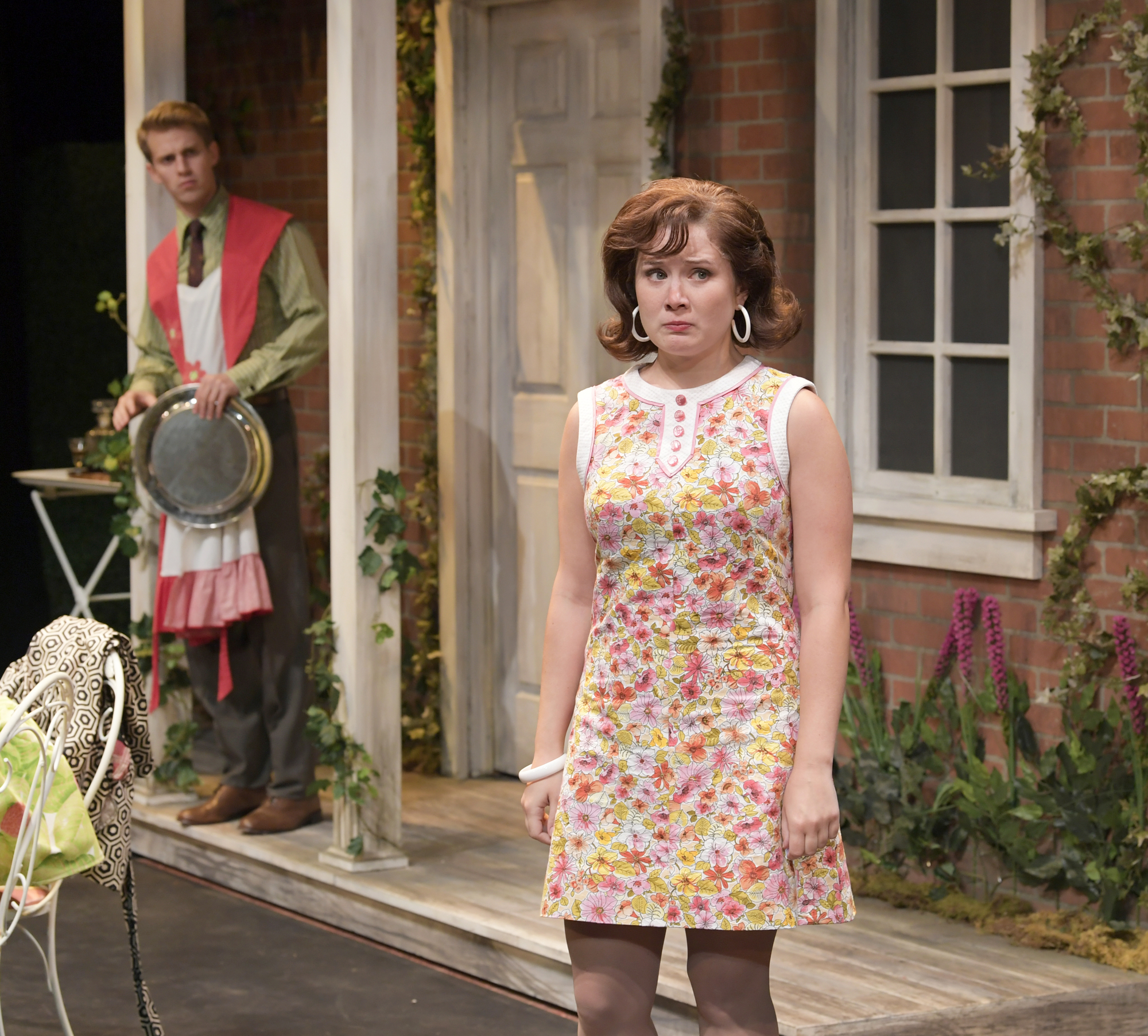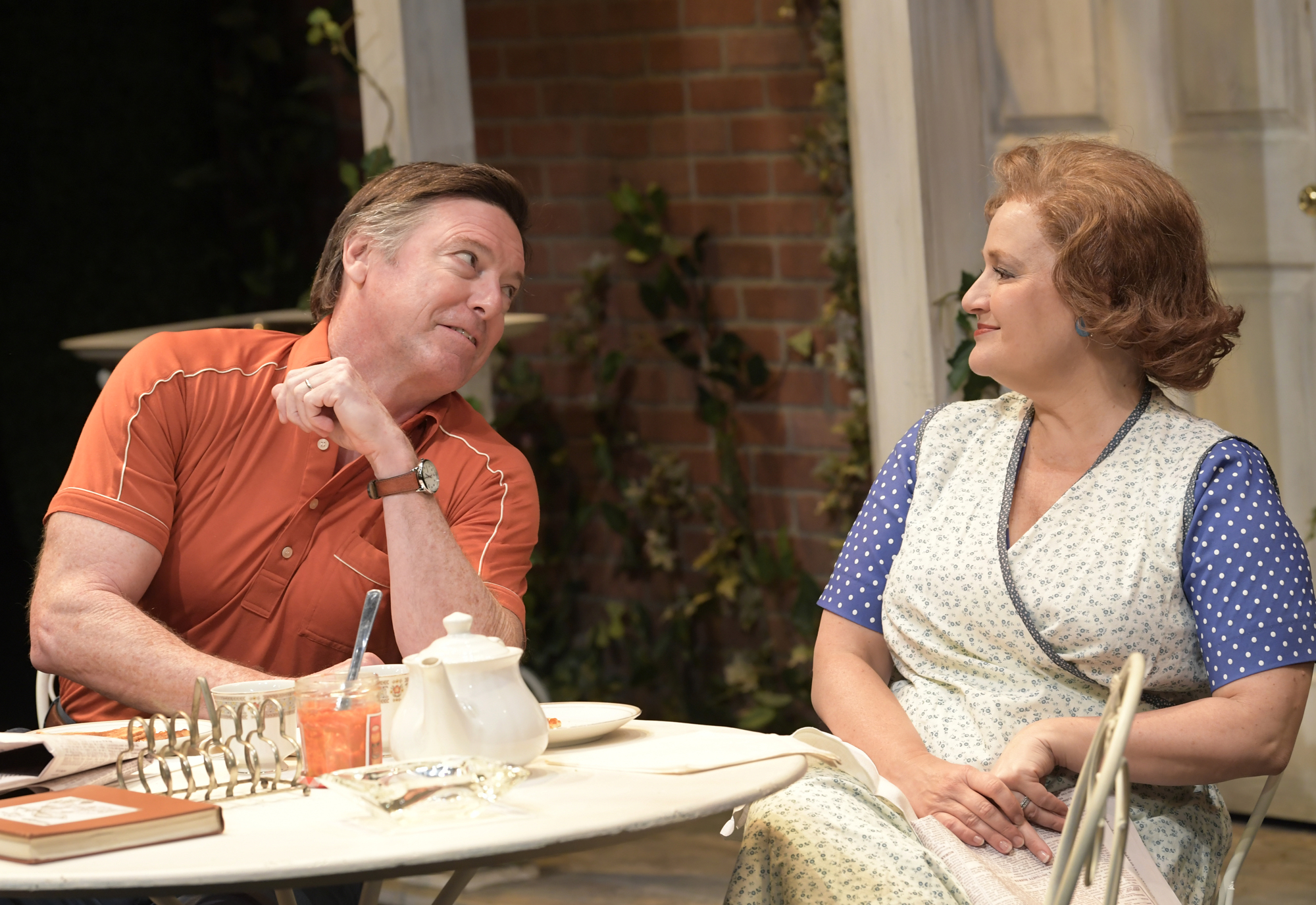- November 23, 2024
-
-
Loading

Loading

Alyn Ayckbourn’s “Relatively Speaking” is this summer’s premiere offering from FSU/Asolo Repertory Theatre's Dog Days Theatre program. Boiled down, the playwright’s 1965 trifle is a lot of little jokes flowing out of one big joke: pronoun ambiguity.
Being vague about “he” and “she” send two British couples on a one-way trip to the land of confusion.

We open with a young couple — Ginny (Kelly Elizabeth Smith) and Greg (Wyatt C. McNeil). They’re shacking up in Ginny’s London flat — an untidy abode with floral-print wallpaper resembling Twiggy’s miniskirt. Greg, who’s just a jealous guy, has his suspicions aroused thanks to truncated phone calls, mass quantities of roses, two unexplained slippers and enough boxes of chocolates to send Forrest Gump into diabetic shock. But Greg puts it out of mind — and secretly follows Ginny to what he thinks is her childhood home in rural Britain. His train arrives first, although his comprehension never catches up.
Old-fashioned Greg plans to ask Ginny’s father for her hand in marriage. But Ginny’s 40-something “daddy,” Philip (David Kortemeier), is really her former sugar daddy — the irritating bloke who’s been sending all those chocolates and flowers. It seems Philip’s been cheating on his 40-something wife, Sheila (Julia Gibson). She’s not Ginny’s mum, although Philip thinks Greg is his wife’s secret lover. Greg, in turn, thinks Ginny’s been adopted by terrible parents. Sheila thinks Greg’s a nice young man who dropped in for no reason at all. Nobody knows who anybody is until the last 10 minutes. Greg never figures it out. Ah, well.

It’s the kind of thing that happens when you ignore railway timetables and always substitute “he,” and “she” for proper names.
Ayckbourn’s vast improbability is meant to play as a low-key farce. No slamming doors, running around or hiding under beds — just slow burns and slower revelations.
Honoring the playwright’s intention, director Brendon Fox sets the comedy on low flame and lets it simmer. (The approach works. My friend reports aching shoulders from laughing so much.)
Kudos also to Lex Liang for a versatile, revolving set that doubles as the young couple’s flat and the middle-aged couple’s cottage. (Sheila hilariously hides the change by hanging up laundry — to the tune of a Herman’s Hermits’ hit.) David Covach’s costumes fit the times without making you feel like you’re watching an Austin Powers movie.
Aside from clever clothes and furniture, there are great comic performances, as well. And each actor has a different comic style.

McNeil plays Greg as an ignorant innocent whose sunny nature shields him from the awful truth. Smith’s Ginny is a sweet young thing, perhaps smarter, although not so innocent. Kortemeier’s Philip resembles the last few moments of sanity of Sam Neill’s character in “Event Horizon,” the 1987 horror sci-fi flick. (With the difference that he never snaps, hurts anybody or does anything unholy, un-British or improper.) Gibson’s Sheila is nobody’s fool — although you think she’s foolish at first. That’s a set-up, of course. The playwright first tricks you into underestimating Sheila, then shows you what she’s made of.
Mistaken identity based on misplaced pronouns is the central gimmick — and a very old one. In ham-fisted hands, it’s a tired cliché. In Ayckbourn’s deft hands, it anticipates the surreal riffs of Monty Python — and occasionally echoes Ionesco. When there’s heavy talent behind it, light comedy’s no waste of time.
If laughter’s your bag, and don’t mind aching sides and shoulders, this is the play for you.